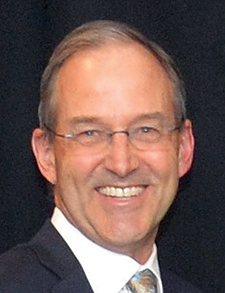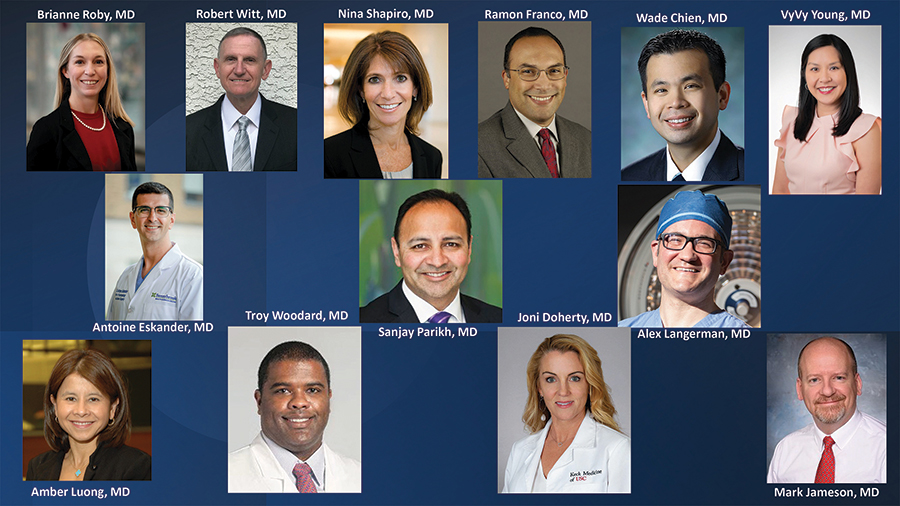It is mid-July 2014. I settle into my Amtrak seat heading to New York for an international head and neck meeting. Four hours with no distractions, no movies, and no functional Wi-Fi). Today, I will write. I have the data, I have the statistics, the methods, the results. Now I need to bring it all together.
Explore This Issue
June 2024It has been 11 years since I was proposed as a Fellow candidate for the Triological Society. I am now one of those late people. (Review shows that 90% of successfully submitted theses are submitted within five years of the candidate’s proposal.) This is not what I intended. I had a plan. As they say, “If you want to make god laugh, tell her your plans.” But then, life happened—many good things, but the pace for this effort slowed. Now is when I change that—when I write the paper that incorporates and furthers my previous work while paying homage to the two great surgical forces in my development as an academic head and neck surgeon. I remind myself that I chose to do this.
My fingers peck at the keyboard: “Since Billroth performed the first total laryngectomy…”
It will be completed by the end of the month.
Now, a decade later, I enter my fourth year as chair of the Thesis Committee for the Triological Society—the only academic society within our specialty that requires the production and acceptance of a thesis for formal membership in the organization. I have had the great fortune to follow such visionaries as Rick Pillsbury, MD, and Dana Thompson, MD, in this role. We have all benefitted from their efforts to make the process more equitable, accessible, and transparent while maintaining a commitment to academic and scientific rigor.
The How
The logistics of submitting a thesis are well-delineated on the Society’s website: New candidates for membership are submitted for review in October; review and vote are completed at the Section meetings in January; upon approved candidacy, the candidate can submit their thesis; and the submission date is August 15th for any given year (candidates should complete a Letter of Intent, used to identify potential issues, by February of their year of submission).
Each thesis will be submitted in one of six areas: Clinical, Basic Science, Health Services Research, ORL Status and Trends, Technology/Procedure Development, and Historical Perspective. The formalization of these thesis categories and the standardized metrics for evaluating each create a framework where any piece of significant academic work can find a home.
All submitted theses are then reviewed by the central offices of the Society (under the guidance of the amazing Colleen Finnerman) for appropriate format and anonymity. Successfully submitted theses are then reviewed in the fall by the Thesis Committee.
The Thesis Committee is not a collection of curmudgeonly ogres existing to torture candidates and prevent their acceptance into the Society. They are a diverse and devoted group of outstanding academic physicians from varied backgrounds who commit significant time and effort to recognizing excellence, mentoring peers, and upholding the noble legacy of the Triological Society. They represent all subspecialties within otolaryngology–head and neck surgery, varied scientific disciplines, geographic sections of the society, and a growing diversity within the organization. They are not gatekeepers; they are gifted facilitators.
Upon completion of review, the majority (85–90%) of submitted theses are accepted. A few are recommended for revision. In rare cases, a thesis may be rejected, and the candidate is suggested to pursue another pathway. Notification of a decision, as well as winners of the Harris P. Mosher, Edmund Prince Fowler, Maureen Hannley, and other awards, comes in February of the year after submission.
The What
So that covers the “how” about thesis submissions; now on to the “what.” What makes a successful thesis? A successful thesis advances medical knowledge in our specialty in a meaningful way. It should be a natural representation of the author’s expertise and impact. It should be a work the author will look back on and say, “This is one of the best things I have ever written.”
A thesis should not be a restatement of previous work. It should not be more than 40 pages; nor should it be short and underdeveloped (the introduction and discussion should be full and developed, allowing the impact of the work to be clearly demonstrated). It should not be rushed and forced—you should be proud of every page.
The Why
Finally, the why. Why write a thesis? Why face this hurdle? Why make this extra effort? Well, the reason is quite simple. The thesis is core to who we are in the Triological Society. Our mission: “To encourage and assist Otolaryngologist–Head and Neck Surgeons and other healthcare professionals to develop, maintain, and enhance their knowledge and skills in their pursuit of improved patient care through education, research, and fellowship.”
We have made a concerted effort to evolve the previously held impressions of the Triological thesis as an obstacle to be overcome. The thesis is not an obstacle; it is an opportunity, an opportunity to clearly state who we are as academic difference-makers, an opportunity to rigorously acknowledge from where we came while exalting where we may go, an opportunity to join a society of like-minded souls and allow them to rejoice in our efforts.
To paraphrase John Kennedy from his address at Rice University in 1962: We choose to write a thesis. We choose to write a thesis not because it is easy, but because it is hard; because that goal will serve to organize and measure the best of our energies and skills because that challenge is one that we are willing to accept, one we are unwilling to postpone, and one we intend to win.
We choose to write a thesis because we are the Triological Society.
 Dr. Deschler is a professor of otolaryngology–head and neck surgery at Harvard Medical School in Boston and chair of the Triological Society Thesis Committee.
Dr. Deschler is a professor of otolaryngology–head and neck surgery at Harvard Medical School in Boston and chair of the Triological Society Thesis Committee.
